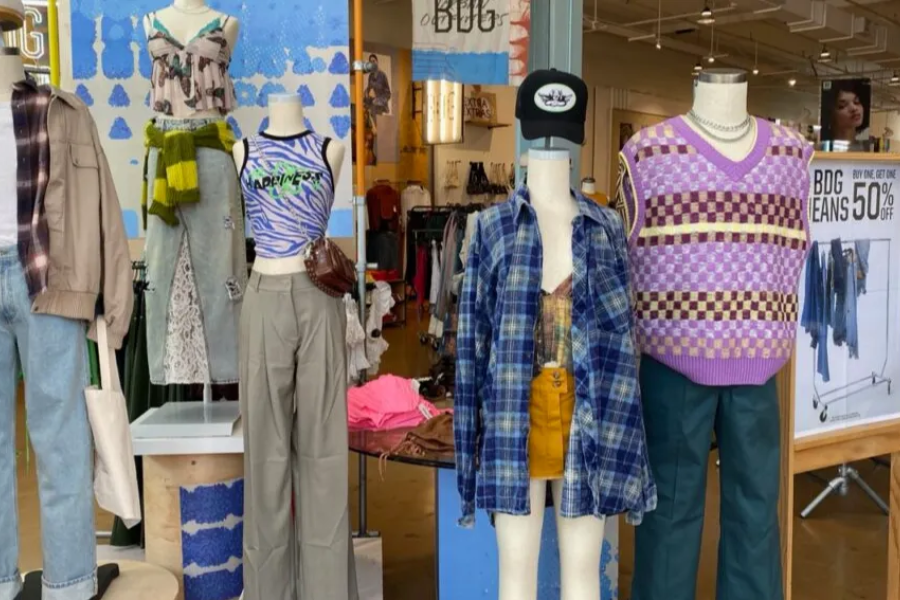Introduction to urban outfitters factories in china and Their Production in China
urban outfitters factories in china has successfully established itself as a distinctive player in the fashion industry. Known for its stylish clothing and unique home goods, the brand attracts a youthful audience eager for trendiness and individuality. However, alongside its vibrant offerings lies a critical issue that warrants our attention: the production practices within its factories in China. As consumers become more conscious of ethical considerations in their shopping habits, understanding the realities behind urban outfitters factories in china’ production practices is increasingly essential. This article aims to explore the complexities surrounding this popular retailer and what occurs behind the scenes in its factories.
The Controversy Surrounding Factory Conditions
urban outfitters factories in china has come under fire for the conditions of its factories, particularly those located in China. Reports have emerged detailing unsafe working environments, long hours, and insufficient wages.
Workers frequently endure demanding shifts without adequate breaks, leading to concerns about physical fatigue and mental strain. Additionally, allegations of poor ventilation and overcrowded workspaces pose significant health risks, raising questions about the brand’s commitment to ethical manufacturing.
Activists contend that these factory conditions reflect a disturbing trend in fast fashion: the prioritization of profit over the well-being of workers. The repercussions for employees can be severe, affecting not only their livelihoods but also their overall quality of life.
Such revelations have ignited discussions among consumers, who increasingly demand transparency from the brands they choose to support. As awareness grows, urban outfitters factories in china finds itself at a critical juncture regarding its production ethics.
Investigating Claims of Unfair Labor Practices
Allegations of unfair labor practices at urban outfitters factories in china factories in China have raised significant concerns. Workers have reported long hours, low wages, and unsafe conditions, with some employees reportedly working overtime without appropriate compensation.
Investigations conducted by various organizations have revealed unsettling trends. Factory audits often expose discrepancies between the reported conditions and the lived experiences of workers. Many advocates for labor rights argue that these issues highlight a systemic problem within the fast fashion industry.
Workers frequently feel trapped in a relentless cycle, where the fear of job loss prevents them from voicing their concerns. The lack of transparency complicates the ability of consumers to grasp the true cost behind their favorite items.
As awareness expands, more voices are joining the call for accountability within the industry. Advocates stress the importance of addressing these claims to foster sustainable change and ensure fair treatment for all workers.
Response from urban outfitters factories in china
In response to criticisms regarding labor practices in China, urban outfitters factories in china has emphasized its commitment to ethical sourcing and production standards. The brand claims to regularly audit its factories to ensure compliance with local laws and its own stringent guidelines.
urban outfitters factories in china also highlights its partnerships with organizations focused on workers’ rights, believing these collaborations enhance transparency within its supply chain. However, despite these assurances, many consumers remain skeptical, as translating promises into tangible changes on the ground is a significant challenge.
Open engagement with stakeholders is crucial for rebuilding trust among conscious consumers who value ethical manufacturing practices.
The Role of Consumers in Ensuring Ethical Production
Consumers wield substantial influence over the fashion industry. When shoppers prioritize ethical brands, companies take notice. Sales directly depend on consumer choices, meaning every purchase communicates what matters to buyers.
If consumers demand transparency and fair labor practices, brands are likely to adjust their strategies accordingly. This ripple effect can lead to improved working conditions worldwide.
The power of social media amplifies this influence even further, as movements advocating for accountability can gain momentum rapidly. As awareness spreads, brands find it increasingly challenging to maintain unethical practices without risking the loss of loyal customers.
Knowledge is vital for making informed decisions. Researching product origins allows consumers to support businesses committed to responsible manufacturing practices.
By opting for ethically produced items, individuals contribute to a broader change within the industry, fostering a culture of responsibility that extends beyond mere fashion.
Conclusion: The Importance of Ethical Manufacturing in the Fashion Industry
Ethical manufacturing has emerged as a crucial topic in today’s fashion landscape. As retailers like urban outfitters factories in china continue to rely on factories in China, scrutiny over their production practices intensifies. Consumers now possess unprecedented power to demand transparency and accountability.
The significance of fair labor practices cannot be overstated. Brands that prioritize ethical standards positively impact workers’ lives and uphold their rights, benefiting both individuals and the reputation of the brand itself.
As consumers, we play a vital role in driving this change. By making informed choices and supporting ethical brands, we can push the industry toward more humane practices. The collective voice of consumers holds the power to influence global operations.
Therefore, it is essential to hold brands accountable for their production processes to cultivate an industry that values fairness alongside fashion. Embracing this responsibility paves the way toward a future where ethical manufacturing is the norm rather than the exception.
